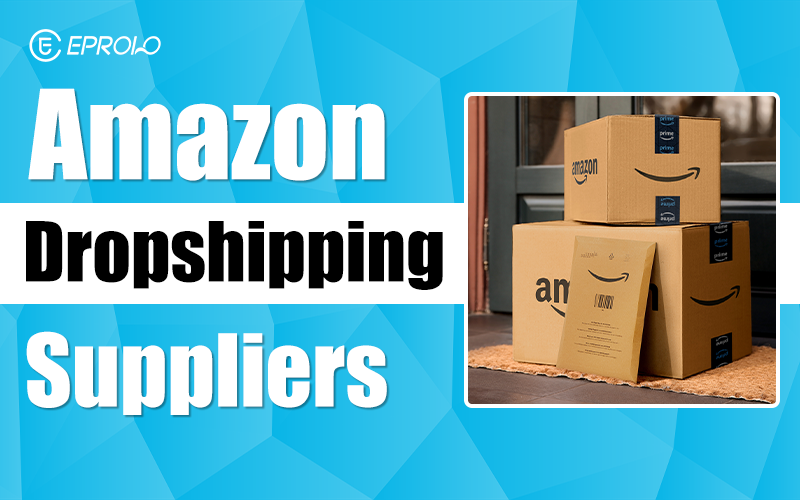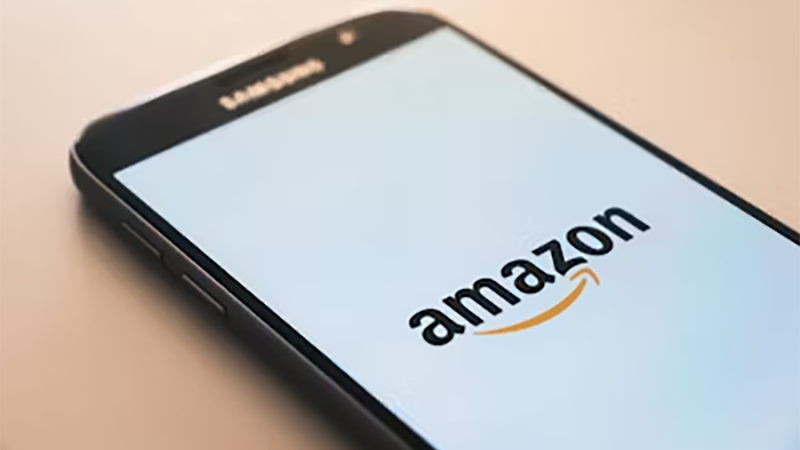In 2026, the world of e-commerce continues to evolve, and dropshipping remains a popular business model. Finding reliable suppliers is essential for successful dropshipping, especially when selling on Amazon.
Let’s explore the top 15 drop shipping companies for Amazon that can help you thrive in this competitive marketplace. From top-notch products to excellent customer service, these suppliers are sure to elevate your dropshipping game in 2026.
From industry veterans with vast product assortments to innovative platforms offering cutting-edge automation tools, we’ve meticulously selected Amazon dropshipping suppliers that not only promise high-quality products but also ensure seamless integration with Amazon’s ecosystem. Read on to find out.

What’s Amazon Dropshipping?
Amazon dropshipping is a business model that enables entrepreneurs to sell products on Amazon, bypassing the traditional route of stockpiling goods. This method is particularly appealing for those looking to enter the e-commerce domain with minimal financial risk and operational overhead.
When a customer makes a purchase from an Amazon store operated by a dropshipper, the order is then passed along to a third-party supplier. These Amazon dropship suppliers are responsible for shipping the product directly to the customer.
Is Amazon Dropshipping Legal?
Yes, Amazon dropshipping is legal. Amazon allows dropshipping in its marketplace, but it has a specific dropshipping policy to obey:
- You Must Be the Seller of Record: Your name or business name must appear on any package slips, invoices, or materials as the seller. This helps customers recognize you as the responsible party for these products.
- Handle customer service: Although your dropshipping suppliers handle inventory and shipping, you’re still responsible for handling customer service. This includes customer inquiries, returns, and complaints.
- Avoid shipping from other retailers: Amazon does not allow sourcing products from retailers like Walmart or AliExpress and shipping them to Amazon customers directly. This can violate Amazon dropshipping policy and result in a penalty like account suspension.
- Remove third-party information: Amazon requires sellers to remove any information that can let customers identify a different seller. Whether it’s a dropshipping supplier or 3PL managing your shipping, make sure to remove all their information from the package.
By following these rules, sellers can operate within Amazon’s dropshipping policies and avoid potential penalties.
Is Amazon Dropshipping Profitable?
Dropshipping on Amazon can be profitable, but success depends on several factors like product selection, supplier reliability, and pricing strategy.
A major advantage of dropshipping is the low startup cost. Since sellers don’t need to buy inventory in advance, it’s ideal for budget-conscious entrepreneurs. This flexibility also allows sellers to test different products without financial risk.
Choosing the right Amazon products is key to maximizing sales. Focus on products with high profit margins and low competition to increase sales.
Reliable suppliers are also important. A good supplier ensures product quality, fast delivery, and responsive support. This helps in reducing the risk of negative reviews and customer complaints.
Amazon’s extensive customer pool is another advantage, allowing sellers to reach millions of potential buyers without spending money for marketing. It also provides both individual and professional plan, giving flexibility for business of all size.
However, Amazon fee structures include various charges, such as referral fees and subscription costs. If you’re using FBA, you need to consider more. You need to strategically pricing your products to stay profitable in case complex pricing structure can eat into your profit.
Lastly, as more and more sellers enter Amazon, the competition can be fierce. To stand out, focus on niche products, write clear and engaging product descriptions, and provide excellent customer service.
Amazon dropshipping offers great potential, but success requires smart product choices, reliable suppliers, and careful planning.

Amazon FBA vs. Dropship on Amazon
Amazon offers Fulfillment by Amazon (FBA) and dropshipping as two main fulfillment methods, each catering to different seller needs without requiring a physical store.
- FBA means Amazon handles the logistics for sellers, including storage, packing, and shipping, offering Prime eligibility but at a cost for these services and necessitating inventory management.
- Dropshipping allows for inventory-free selling, with Amazon dropshipping suppliers shipping directly to customers. This lowers startup costs and increases product range flexibility but reduces control over shipping and quality, potentially affecting customer satisfaction.
The choice between FBA and dropshipping hinges on a seller’s priorities: FBA for those valuing fast shipping and minimal logistics handling and dropshipping for those favoring a low-risk model with diverse product offerings.
A List of the Best Amazon Dropshipping Suppliers
The key to create a successful Amazon dropshipping business depends on reliable suppliers. Here is a list of dropshipping suppliers for Amazon:
1. EPROLO
EPROLO functions as an all-in-one dropshipping platform, and it stands out with its warehousing service. EPROLO has 26+ global warehouses, ensuring swift shipping to customers worldwide. Among them, the US warehouse excels in faster domestic deliveries. Dropshippers can access over 10,000 dropshipping products through the US warehouse, covering everything from small gadgets to electronics.
For Amazon sellers, EPROLO provides both specialized FBA and FBM fulfillment services. Sellers can ship products from EPROLO’s US warehouse to Amazon fulfillment centers or the end customers at a faster speed. EPROLO’s warehousing and fulfillment service streamlines business operations, enabling you to focus on growing business.
With EPROLO, you can access millions of products, including apparel, cosmetics, home goods, and more. With EPROLO’s image search tool, uses can upload an image, and find the similar products from its categories. Beyond that, its AI sourcing feature also shows you unquoted items, which only include estimated prices. Customers can click ‘get a quote’ for pricing or view detailed shipping information.The platform also has strict quality control over their products, making sure of fewer complaints and refunds caused by product deficiency.
Importantly, there’s no minimum order quantity (MOQ), so startups and small businesses can benefit. You can also access EPROLO’s branding service, which allows you to create custom labels, hangtags, and packaging, creating a unique brand identity.
Moreover, EPROLO has integration with Amazon, streamlining the process of managing inventory, orders, and shipping.
With such powerful features and excellent customer support, EPROLO is an excellent Amazon dropshipping supplier for entrepreneurs.

2. SaleHoo
SaleHoo serves as an online directory that connects business owners with wholesalers and dropshipping suppliers. It offers extensive product categories from more than 8,000 trusted suppliers, ensuring their quality and reliability.
The platform’s product research tool assists Amazon dropshippers in analyzing market trends and discovering top-selling products. SaleHoo also helps beginners in e-commerce launch and grow their businesses by offering training and guidance. Many providers have no or low minimum order quantity (MOQ), making it a beginner-friendly platform.
However, not all dropshipping suppliers on SaleHoo provide direct integration with Amazon. Working with suppliers without integration capabilities requires you to manually import goods and manage the store. Additionally, it requires a paid subscription, which costs $67 per year. This provides you with access to its supplier network and services for a year.
3. AutoDS
AutoDS is a popular drop shipping companies for Amazon, and it’s renowned for powerful automation features. It gives dropshippers access to a wide range of products from global suppliers, making it easy to diversify your product selection.
To help Amazon sellers achieve success, AutoDS offers product research tools, helping sellers to identify profitable products and market trends. You can also leverage their automation features for product imports, inventory management, and order fulfillment. Additionally, it integrates with Amazon, allowing seamless order processing and inventory updates.
However, it requires a paid subscription to use its service. You can start with the entry-level plan, Import 200, which costs $19 a month. More powerful features are available with higher-tier plans.
4. Zendrop
Zendrop is a dropshipping website that connects sellers and dropshipping suppliers, providing streamlined fulfillment service and automation solutions. You can find everything on their platform, including both regular and unique products for Amazon.
The platform’s US fulfillment service makes it stand out in the marketplace. Once your customers place orders, Zendrop ships products directly from their US warehouses for quicker delivery, improving the overall shopping experience. Additionally, Zendrop makes it simpler to create a new brand by providing private labeling and branding options.
Zendrop offers a curated product selection that you can add to your store. However, it doesn’t directly integrate with Amazon; you need to manually list products and forward dropshipping orders. As for pricing, Zendrop offers both free and premium programs. While the two subscription plans offer sophisticated tools for growing a business, the free plan only offers several functions.
5. AliExpress
AliExpress is a well-known Amazon dropshipping supplier, and it’s known for offering a large product selection at cheap prices. With millions of products across various categories, sellers can easily locate popular or niche products.
One of the top features is the AliExpress Dropshipping Center, a free tool used to help sellers to find potential products. This is invaluable for optimizing product selection and staying competitive. Furthermore, there is no MOQ, so small enterprises can source goods without financial strain.
Despite its benefits, AliExpress has some drawbacks. Most dropshipping suppliers are based in Asia, which often results in long shipping times that may take several weeks to reach customers. Also, product quality can vary between suppliers. Dropshippers need to carefully vet suppliers before committing to a partnership, avoiding complaints that are caused by poor quality.

6. Alibaba
Similar to AliExpress, Alibaba is a renowned wholesale platform. However, it’s a B2B wholesale platform that allows businesses to buy products directly from manufacturers.
Known for its extensive product line and wholesale pricing, Alibaba is an excellent choice for bulk purchases. In addition, many Alibaba suppliers provide private labeling service, allowing sellers to create unique dropshipping items.
But since most suppliers are based in China, long shipping times may become a hurdle. Also, some suppliers may sell low-quality or non-compliant products. This could hurt your company’s reputation and perhaps result in Amazon account suspension.
While Alibaba is not a traditional dropshipping platform, it does allow sellers to communicate directly with manufacturers. You can negotiate MOQs, price, and other terms, gaining better service.
7. Wholesale2B
Wholesale2B is a general dropshipping supplier with access to a wide range of products for Amazon. It’s product selection ranges from apparel and cosmetics to fitness gear and outdoor equipment.
One of Wholesale2b’s key advantages is its integration with several sales channels, including Amazon, eBay, and Shopify. This allows retailers to easily list and manage products. Customers in the United States, Canada, and the United Kingdom benefit from quicker delivery thanks to local warehouses in these regions.
However, the site requires a monthly subscription price that begins at $29.99, which may be prohibitive for novices.
8. Doba
Doba is a leading Amazon dropshipping provider that connects sellers with its global network of suppliers. It offers a wide selection of products, including kitchen tools, children’s toys, and furniture, catering to sellers in a variety of sectors.
Doba’s US warehouses deliver timely and reliable fulfillment to your customers. It also offers integration with Amazon, letting sellers easily manage inventory, process orders, and track shipments in real time. With dependable suppliers and efficient operations, sellers can concentrate on marketing and customer support while Doba manages the fulfillments.
Doba provides flexible subscription plans, allowing Amazon sellers based on their needs. Its user-friendly interface and robust support system make it an excellent choice for anyone looking to start their Amazon dropshipping business.
9. Sellvia
Sellvia is one of the leading dropshipping platforms that provides a wide product selection. With items ranging from clothing and cosmetic products to car accessories to outdoor gear. It’s perfect for dropshippers.
As one of the best Amazon dropshipping suppliers USA, it has local warehouses for fast and reliable shipping. This provides your customers with faster deliveries and a better shopping experience. However, since the platform is not integrated with Amazon, sellers need to manage orders manually.
Sellvia offers a variety of subscription plans for businesses of all sizes, from newbies to established sellers. Its user-friendly interface and excellent customer support make it ideal for sellers looking to expand their Amazon dropshipping business!

10. Spocket
Spocket connects your business with dropshipping suppliers in the United States and Europe. Spocket provides a list of dropshipping providers in the United States and Europe who provide fast and efficient deliveries to your customers.
Spocket, which has over 20 million products, services Amazon sellers across a wide range of niches. These products are sourced from dropshipping suppliers in the United States and Europe, confirming their quality and reliability. Furthermore, they integrate with Amazon and provide automated solutions to help dropshippers manage and develop their Amazon dropshipping businesses.
The platform offers various subscription plans ranging from Starter Plan to Unicore Plan, which merchants can select based on their business needs. Spocket, with no minimum order quantity, is a perfect solution for Amazon merchants wishing to develop their business.
11. Megagoods
Megagoods is a niche dropshipping supplier specializing in consumer electronics. It provides over 3,000 items, including headphones, speakers, and kitchen appliances. Amazon sellers can find in-demand products at reasonable prices while keeping solid profit margins.
Megagoods partners with a variety of prominent brands to ensure excellent products that can help build loyal customers. Orders are processed and sent within 1-2 days of receipt, providing speedy delivery for Amazon customers.
However, Megagoods does not immediately link with Amazon or other e-commerce platforms, so sellers must manually import products and handle orders. Furthermore, they only ship within the United States, which may limit some businesses’ growth potential.
12. Sunrise Wholesale
Sunrise Wholesale is a reputable dropshipping supplier situated in the United States. It offers a diverse range of products, such as electronics, home decor, kitchenware, and more, making it excellent for Amazon sellers targeting different niches.
The platform integrates seamlessly with Amazon, allowing sellers to manage inventory, process orders, and track shipments in real time. With domestic warehouses, Sunrise Wholesale ensures fast and reliable shipping, enhancing customer satisfaction.
A subscription fee is required; its automation features and broad product range make it a solid choice for Amazon dropshippers looking to streamline their business.
13. Printful
Printful is a leading dropshipping platform that specializes in print-on-demand (POD) products. It allows you to turn your creativity into real, physical products. The business offers many kinds of custom items, like clothing, accessories, and home decor.
With automated Amazon integration, Printful handles inventory, printing, and shipping for you. This makes order management and fulfillment easier. Furthermore, with no MOQ policy and a robust mock-up generator, sellers can test new designs without spending large upfront costs.
Printful’s global fulfillment capabilities ensure that your Amazon customers enjoy prompt shipping worldwide. It is a free dropshipping service, but production expenses apply. Printful provides a simple solution for Amazon retailers looking to provide personalized products.

14. BrandsGateway
BrandsGateway is a premium dropshipping company that specializes in luxury fashion items. It provides products like designer clothing, shoes, and accessories.
Partnering with over 4000 luxury brands, buyers of BrandsGateways can reach high-quality products at cheap prices, maintaining strong profit margins. BrandsGateway’s European and US warehouses provide speedy shipping for your Amazon consumers, which increases customer happiness.
However, the platform does not directly interface with Amazon, so you must manually manage the dropshipping store. This can require a significant amount of time and energy. BrandsGateway offers a yearly subscription cost of €147 per month, but no minimum order is required. BrandsGateway provides high-quality products at competitive prices to Amazon merchants who specialize in luxury fashion.
15. Worldwide Brands
Worldwide Brands is an online supplier directory, connecting Amazon sellers with wholesalers and dropshipping suppliers who are thoroughly vetted.
With Worldwide Brands, you can access over 8,000 certified dropshipping suppliers with over 16 million products for Amazon store. This gives you confidence in the legitimacy and reliability of their supply chain. In addition, the list of vetted suppliers is updated daily.
It provides detailed supplier information, including their website address, phone numbers, and specialized niche to ensure transparent and direct communication.
However, accessing the online directory requires significant investment. Unlike other platforms, Worldwide Brands offers a lifetime access with a one-time fee of $187. Additionally, the MOQ varied between suppliers.

What to Look For When You Choose A Dropshipping Supplier
In dropshipping, sellers rely primarily on suppliers to manage inventories, fill orders, and handle refunds. Therefore, it’s important to select Amazon dropshipping suppliers carefully, as they can impact product quality, customer satisfaction, and overall profitability. Here are some factors to consider when looking for suppliers:
Product quality
First and foremost, find dropshipping providers who offer high-quality Amazon dropshipping products. High-quality items are vital for happy customers. High-quality products not only help to create customer trust but also reduce the likelihood of a return or refund. Additionally, customers are always willing to pay more for quality products, so it also adds to the level of profitability and encourages repeat purchasing.
Always request a product sample to assess quality, then study the materials, craftsmanship, and longevity of the products. Keep in mind that selling inferior goods can harm your brand reputation irreparably.
Timely Shipping
Selecting a dropshipping supplier with quick shipment is essential. It guarantees satisfied customers along with meeting Amazon’s strict shipping standards. So, pick suppliers with an efficient shipping process. The best suppliers will be those like EPROLO that are based in or have local warehouses in your target area. Avoid those with long shipping records and inconsistent delivery performance.
Pre-order Fees
Choose free to use or a low pre-order fee. A dropshipping supplier is important, especially for startups and small businesses with limited resources. Platforms like EPROLO and Printful are free to use; Amazon sellers only need to pay for the products and shipping once they make sales. Low pre-order fees allow you to maximize the limited resources and allocate more budget to growing your business.
Integration
Seamless integration with your Amazon store is essential. Suppliers with Amazon integration allow you to automate order processing and inventory management. So, look for Amazon suppliers that offer integration tools such as EPROLO, AutoDS, or Zendrop that will streamline your operations and reduce errors, saving you time to focus on growing your business.
Customer Support
Reliable customer support is critical to resolving issues quickly, whether they are about order fulfillment, shipping delay, or product quality issue. Choose a supplier with a responsive and helpful support team to ensure smooth communication and problem resolution. Evaluate your supplier’s communication channels to ensure you can reach them quickly.
A good dropshipping supplier should have strong customer service, which offers a better shopping experience for your customers and fewer worries for you.
By carefully evaluating these factors, you can select a reliable Amazon dropshipping supplier that aligns with your business goals and ensures a positive experience for your customers. This will set the foundation for a successful and sustainable dropshipping business on Amazon.

How to Find the Best Amazon Dropshipping Suppliers
Finding reputable drop shipping companies for Amazon is critical for establishing a successful dropshipping business. It is worthwhile to spend time conducting thorough research to discover suppliers who meet your business objectives.
- Research potential suppliers: Start by creating a list of possible dropshipping suppliers. You can find suppliers using online directories, social media platforms, blog articles, trade shows, and so on. Popular choices are EPROLO, AliExpress, and Spocket. Choose the ones who fit your niche and sell what you want.
- Check customer reviews & testimonials: After creating a list of providers, research their reputation by reading customer reviews and testimonials. Read reviews on product quality, shipping time, customer service, and pricing structure. You can also get insight through platforms like Trustpilot, Reddit, and industry-specific forums.
- Contact suppliers & ask about terms: Reach out to potential Amazon dropshipping suppliers on your shortlist. Inquiring the questions about shipping policy, return policy, and any additional fees. This will help in setting expectations toward your future dropshipping business.
- Compare pricing & fees: Dropshipping suppliers for Amazon normally charge a small fee for using their service. Compare the pricing structures of different suppliers. It helps in maintaining competitive pricing on Amazon while maintaining healthy profit margins. Be careful about hidden fees, such as storage costs or fees for using automation tools. A supplier with transparent pricing will make it easier to manage your budget.
- Order test samples before committing: Ordering test samples before establishing a partnership. This helps you evaluate their product quality, shipping time, and customer service directly, setting expectations for future collaboration. In addition, the samples can be used in multiple ways, such as marketing materials or giveaway events. Regularly ordering product samples to ensure consistent product quality and customer service.
By following these steps, you can find suppliers that meet your business goals and deliver an excellent shopping experience to your customers. Take your time to do thorough research, and it will pay off in the long run in the Amazon dropshipping world.
How to Start Dropshipping on Amazon
Starting a dropshipping business on Amazon can be challenging; it requires careful product selection, reliable dropshipping suppliers, and a solid strategy. Here is a step-by-step guide to dropshipping on Amazon:
1. Explore profitable products
To build a successful Amazon dropshipping business, focus on smart product selection. Prioritize products with strong demand, low competition, and good profit potential. Add both evergreen products and trending items to your store; the former sells steadily year-round while the latter is for quick sales. Avoid markets dominated by big brands to improve visibility.
Ensure your prices remain competitive while still covering costs like product fees, shipping, and expenses. Use tools like Google Trends to track interest over time, and explore Instagram, TikTok, and Pinterest for trend insights.
2. Select a reliable dropshipping supplier
Choose a reliable dropshipping supplier for your Amazon business. Consider factors such as product quality, shipping times, pricing structures, and integration capabilities.
EPROLO is a robust dropshipping option for Amazon business. It caters to sellers within different niches with a wide range of products. The branding support assists sellers in complying with Amazon’s dropshipping policy and building a brand. Lastly, its Amazon integration simplifies operation, automating repetitive work.
It’s important to choose dropshipping partners that comply with Amazon’s dropshipping policy. Some sellers choose to work with multiple suppliers to prevent delays or stockouts, but it can increase your workload.
3. Create an Amazon Seller account
The next step is to create an Amazon seller’s account. Amazon offers two seller plans for you to choose. The individual plan is fit for sellers who do not plan to sell more than 40 items per month, while it is not completely free. Sellers need to pay $0.99 for each item sold. Another selling plan is the professional plan, which costs $39.9 per month. It allows you access to advanced features.
4. Optimize your product listings
Create compelling product listings to attract customers and improve your search rankings. The product description should be clear, engaging, and optimized to capture attention. Incorporate relevant product keywords into titles and bullet points to improve visibility.
Use high-quality images to attract buyers. Don’t forget to compare your pricing with other listings to ensure it’s competitive.
5. Market your store
Use a mix of marketing strategies to capture attention, driving traffic to your online store. Leverage Amazon PPC advertising to target specific keywords and reach potential customers. You can also post product-related content and engage with the audience on social media to build customer loyalty.
Other marketing strategies include email marketing, SEO, and influencer partnerships, helping you expand your reach. Building a strong brand presence will help you attract repeat customers.
6. Manage orders
Once your customers place orders, make sure they’re processed and fulfilled promptly. Work closely with your dropshipping suppliers to confirm orders and track shipments.
Suppliers with Amazon integration capabilities allow automating forward orders, reducing manual work. Timely dropshipping fulfillment is crucial for maintaining customer satisfaction.
7. Provide customer support
Provide excellent customer service to your customers. Since you’re the seller of record, you’re responsible for bringing a positive shopping experience to your customers. This includes being responsive to their inquiries, resolving issues, and handling returns. Prompt and helpful support can lead to positive reviews and repeat purchasing.
You can also build or refine your FAQs page, which can help customers find information they need, reducing your workload.

Conclusion
With the right suppliers, navigating the world of Amazon dropshipping is a venture that holds the promise of great rewards. Our journey through the various supplier options and strategies for finding the best match for your business underscores the importance of diligence and informed decision-making in e-commerce.
Whether you’re just starting or looking to expand your product line, the heart of success in dropshipping lies in quality products, reliable fulfillment, responsive customer service, and a supplier relationship that supports your business’s growth.
By keeping these factors in mind and utilizing the resources available, your dropshipping business can flourish on Amazon, delivering satisfaction to your customers and success to your doorstep.
The Best Amazon Dropshipping Suppliers: FAQs
1. How much does it cost to dropship on Amazon?
The costs associated with dropshipping on Amazon include the Amazon seller account fee, which is either $0.99 per item sold for an Individual account or a flat rate of $39.99 per month for a Professional account.
Additionally, referral fees vary by category. Other potential costs may include dropshipping service fees charged by your supplier and any advertising or marketing expenses you incur.
2. What are the best dropshipping sites in the USA for Amazon?
The best dropshipping sites depend on business needs and goals. EPROLO is one of the best dropshipping companies for Amazon. It provides a wide product selection to cater to sellers in different niches. With US warehouses, your customers can receive their packages rapidly. Finally, it complies with Amazon dropshipping policies, ensuring your business is safe in the long run.
3. How do I start dropshipping on Amazon without money?
To start dropshipping on Amazon for free, you need to:
- Set up your Amazon store with an individual plan; you only need to pay Amazon once you make sales.
- Research profitable products through free tools like Google Trends, Amazon Best Seller Lists, and TikTok.
- Partner with reliable drop shipping companies for Amazon. EPROLO is a great option; it is free-to-use and allows you to access a curated product selection at affordable pricing.
- Market your dropshipping products through free marketing channels, such as SEO, content marketing, and social media.
- Once the sale is made, forward them to your suppliers to fulfill orders. You can receive the profit margins to reinvest your business.







